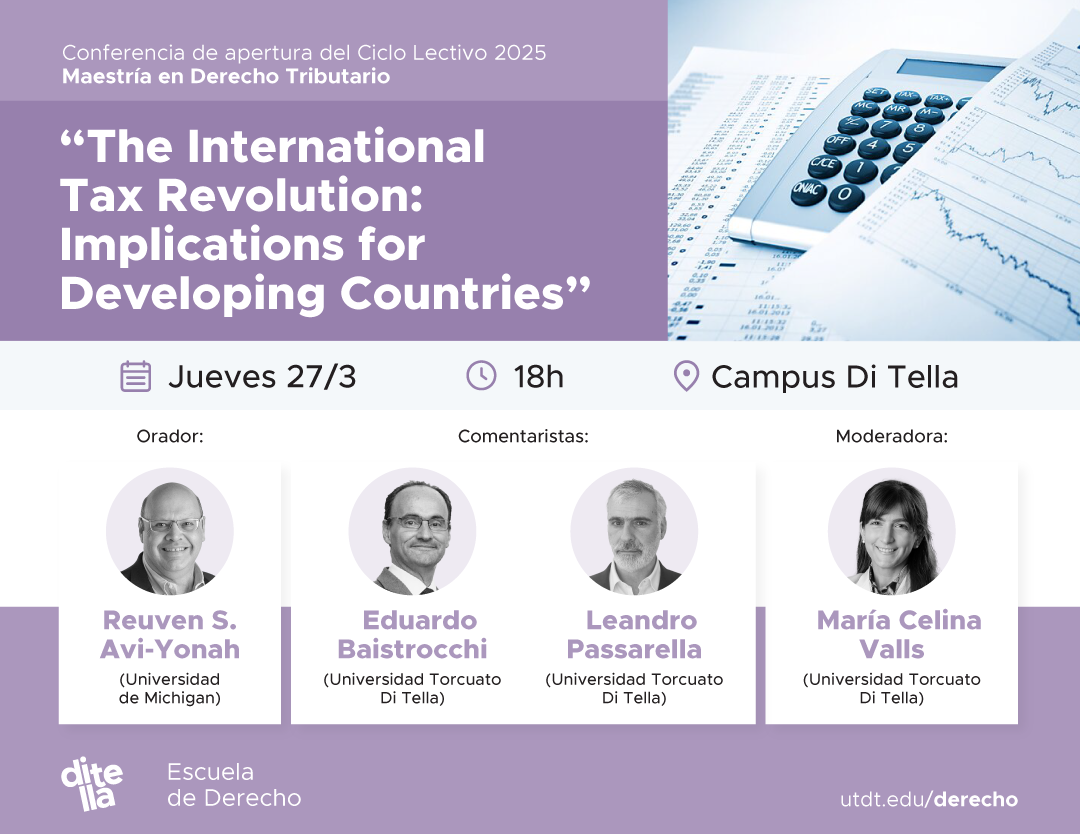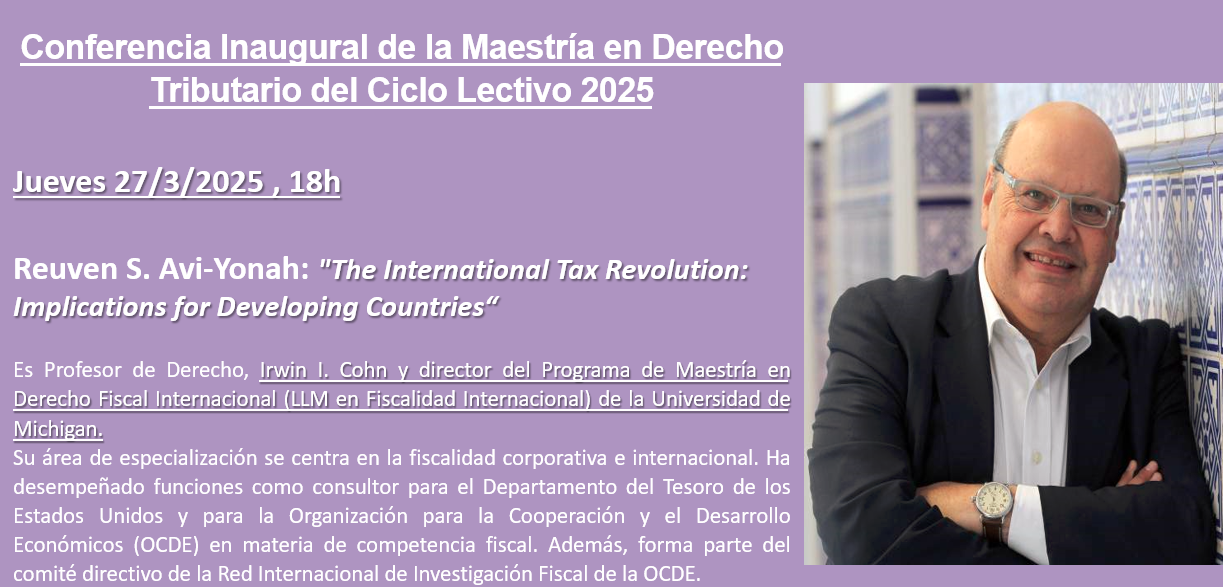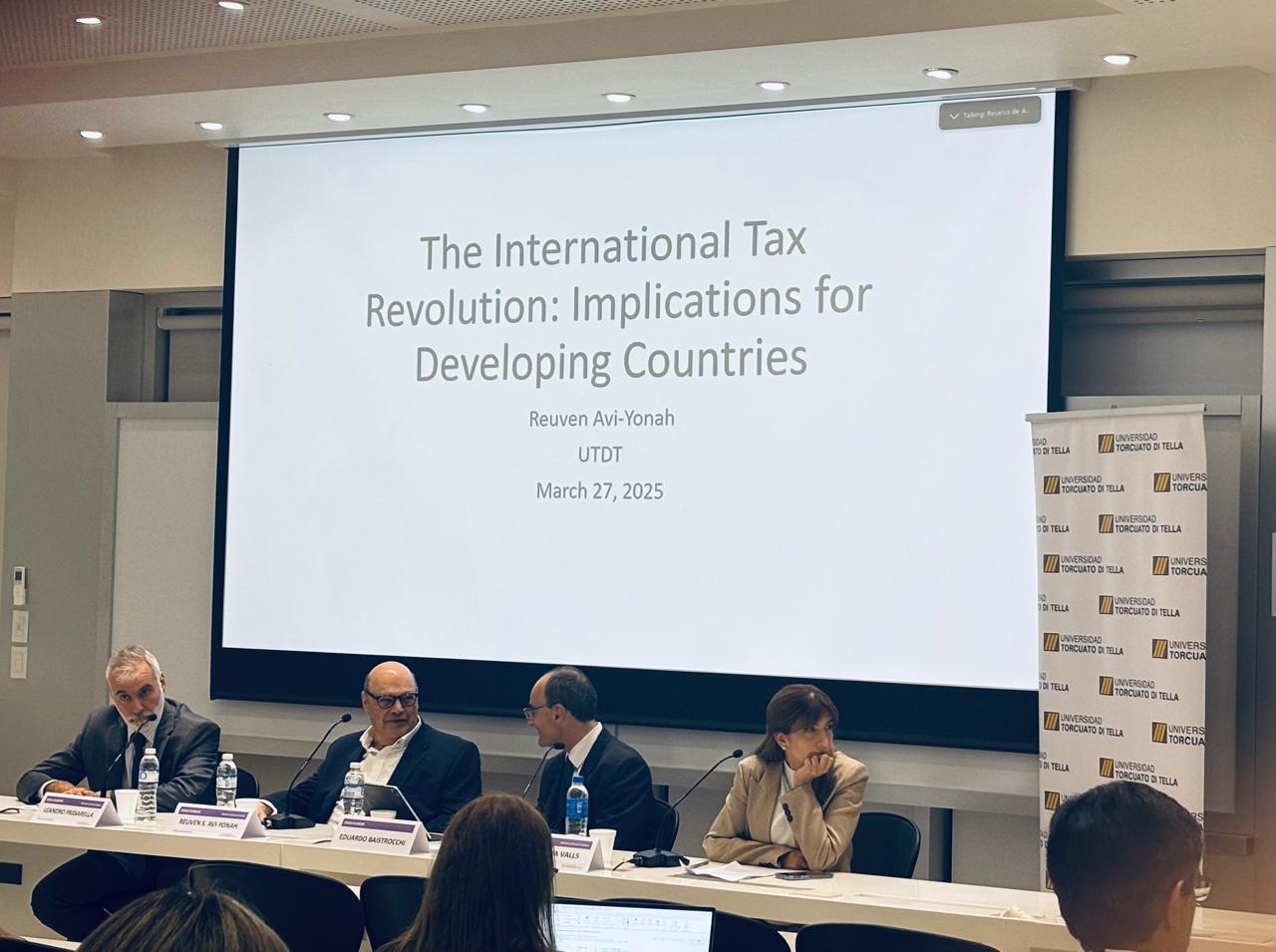Abstract: Over the past decade, a new International Tax Regime (ITR) has emerged, replacing the century-old framework established by the League of Nations in 1923, which had effectively mitigated double taxation and non-taxation until the 1980s. The rise of globalization, digitalization, and intensified tax competition undermined the original ITR, forcing countries to choose between tax rate reductions to retain capital or losing revenue essential for welfare states. This tension became untenable after the 2008-09 financial crisis, which exposed systemic inequities, including low tax contributions from wealthy individuals and corporations. The new ITR aims to address these issues by curbing tax evasion and competition, but its success hinges on resolving inter-nation equity, particularly in balancing tax revenue allocation between developed and developing countries. Orador: · Reuven S. Avi-Yonah, profesor de Derecho, Irwin I. Cohn y director del Programa de Maestría en Derecho Fiscal Internacional (LLM en Fiscalidad Internacional) de la Universidad de Michigan. Comentaristas: · Eduardo Baistrocchi, director académico de la Maestría en Derecho Tributario de la UTDT. . Leandro Passarella, profesor de la Maestría en Derecho Tributario de la UTDT. Moderadora: · María Celina Valls, directora ejecutiva de la Maestría en Derecho Tributario de la UTDT.
Organiza: Maestría en Derecho Tributario – Escuela de Derecho
| 


